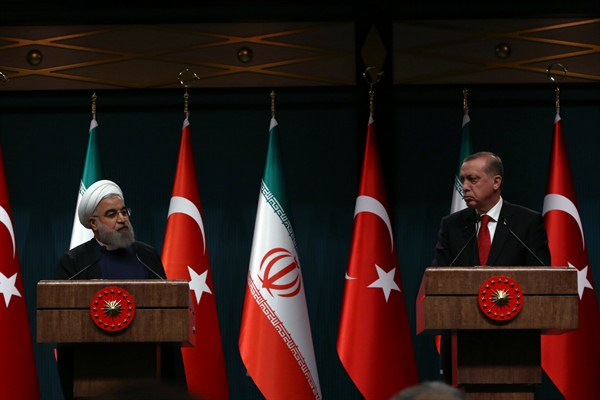Last week, a Turkish energy firm signed a $4.2 billion deal for the construction of seven natural gas power plants in Iran, the largest investment deal in Iran since international sanctions over its nuclear program were lifted. In an email interview, Nader Habibi, the Henry J. Leir professor of economics of the Middle East in Brandeis University’s Crown Center for Middle East Studies, discussed the evolution of Turkish-Iranian ties.
WPR: What were the main areas of political, economic and energy cooperation between Turkey and Iran pre-2011, and what impact did international sanctions on Iran and the Syrian conflict subsequently have on ties?
Nader Habibi: Ever since the Iran-Iraq war from 1980 to 1988, Turkey has served as a major source of consumer goods for Iran, a transit country for Iran’s imports from Western nations, and a purchaser of Iran’s natural gas. The volume of bilateral trade between Iran and Turkey rose from $2.3 billion in 2003 to $22 billion in 2012. As European countries and the United Arab Emirates imposed restrictions on trade with Iran during this period, access to the Turkish market became even more important for Iran, and many Iranian businesses moved their foreign offices from Dubai to Turkey.

